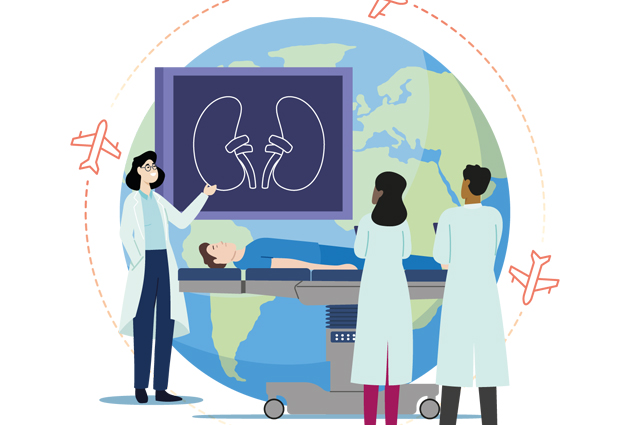Equitable Access to Gene Therapy? Obiageli Nnodu Presents on the Potential and Availability of CrispCas9 Therapy for Sickle Cell Disease at WCN’24
Obiageli Nnodu, professor of Hematology and Blood Transfusion and director of the Centre of Excellence for Sickle Cell Disease Research and Training at the University of Abuja in Nigeria, will present the talk “Crispcas9 Therapy for Sickle Cell Diseases: How Do We Go From Discovery to Equitable Availability of Gene Therapy for All?” at WCN’24.
Register for the congress now to benefit from the early bird rate!
Sickle cell disease and the kidney
Sickle cell disease (SCD) is a genetic disorder affecting millions of people worldwide. It causes severe pain, anemia, and other complications, such as vaso-occlusive events, where blood vessels become blocked and blood flow to organs decreases. As highly vascular organs, the kidneys are particularly susceptible to damage in people with SCD.
The promise of CRISPR-Cas9 therapy
Recent breakthroughs in medical research have identified a promising avenue for treatment—CRISPR-Cas9 gene editing technology. This revolutionary approach could transform the landscape of SCD therapy to offer personalized and targeted medical interventions.
Using CRISPR-Cas9, scientists can edit the faulty hemoglobin gene, correcting the genetic mutation responsible for SCD. The modified cells are reintroduced into the patient’s body, where they can produce healthy red blood cells, potentially alleviating the symptoms of the disease.
The economics of gene therapy
The projected cost of CRISPR-Cas9 therapy is $1.85 million per patient. US economists anticipate that even if only 7% of the eligible population opts for the intervention, it could cost a single state’s Medicare program $30 million.
How, then, will lower middle-income countries like Nigeria, which has one of the highest rates of sickle cell disease worldwide, benefit from this cutting-edge therapy?
Dr. Nnodu commented: “A Global fund for SCD will catalyze the implementation of the WHO AFRO Guidance Framework for SCD Treatment Centres and Centres of Excellence in SCD in high-burden countries, increase access to newborn screening with evidence-based interventions including disease-modifying hydroxyurea treatment and therapeutic red cell exchanges as a foundation for gene therapy.”
Find out more about WCN’s plenary speakers and scientific program here.










